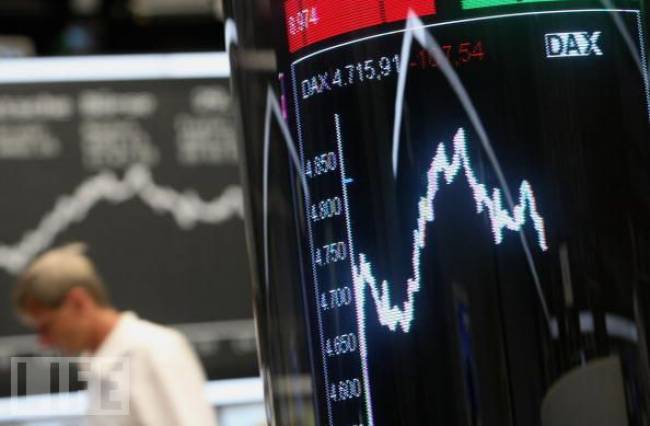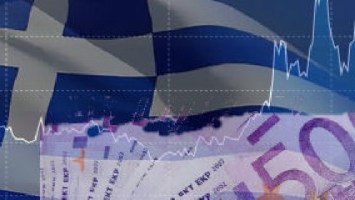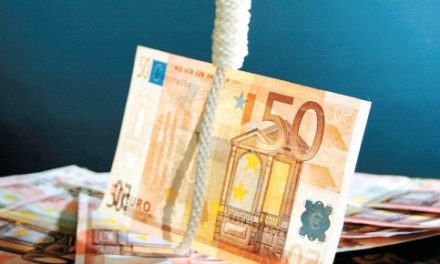BY PAULINA PIELICHATA, Pensions&Investments
Despite the buzz around Greece’s return to the bond markets following a three-year hiatus, love for its paper wasn’t universal.
Greece raised only €3 billion ($3.5 billion) of an anticipated €5 billion last month, even though it has emerged from a series of bailouts in a healthier fiscal condition, sources said.
The Greek government issued five-year bonds on July 25, marking its first sovereign bond issuance since 2014, when $5.5 billion was raised. Issued with a coupon of 4.375%, five-year bonds were yielding 4.56% at the end of July, Bank of Greece data show.
Greece’s return to the capital markets marked a milestone for the country and the eurozone, which has been grappling with mounting levels of Greek debt since 2010. Sources said the move might have been more about restoring investor and lender confidence in the country, which also in July received a third loan from the European Stability Mechanism of €8.5 billion.
Demand from global investors ultimately wasn’t as strong as originally expected, reducing the total amount raised in July. Data from Bloomberg showed that domestic investors bought up the lion’s share of the bonds, followed by U.S. mutual funds, which took one-fifth of the issue.
Still, Wouter Sturkenboom, senior strategist at Russell Investments in New York, said investors look at the eurozone and believe there is an underlying recovery story in Europe — which made the new issue more attractive.
“Despite the obvious fragility of Greece, the recovery story will support Greece, and the bonds will pay.”
Sources said investors may have been looking to buy Greek and other peripheral bonds to take advantage of spread compression trades, essentially buying Greek debt as a relief from compressed investment-grade bond yields. In that scenario, Mr. Sturkenboom said up to 50 basis points in return may be obtained (in Italy and Portugal in particular).
That is a reversal of trades earlier this year, when managers took advantage of convergence trades, trading off core vs. peripheral bonds.
Nicholas Wall, portfolio manager of the Old Mutual Global Strategic Bond Fund, Old Mutual Global Investors in London, said the debt service cost of the Greek government is below that of Italy or Portugal, so large investors could have bought with the spread compression trade in mind.
But sources said while the initial pricing of Greek bonds had market players hopeful they would earn a premium on the new issue, in reality the premium wasn’t there.
Mr. Wall said that Old Mutual had initially subscribed to the bond issue “but in the end, we have ended up not buying them as we thought the market priced them too high. We, however, hold 15-year-long Greek bonds and we are happy to hold them.”
The yield on 15-year Greek bonds was 6.39% at the end of July, Bank of Greece data showed.
Further investment in future issues may be a tough sell to investors. Greek bonds are not yet coming back to global bond indexes even though ratings agency Standard & Poor’s raised the country’s outlook in July from stable to positive. That means that despite an outlook upgrade, the country’s bonds remain out of reach for many pension funds because they remain below investment grade, rated B- by Standard & Poor’s and Caa2 by Moody’s Investors Service.
A spokesman for Florida State Board of Administration, State Board of Administration, Tallahassee, which oversees $186.2 billion in assets, including the $146.1 billion for Florida Retirement System, said in an email that SBA did not purchase any Greek five-year government bonds. “Greece is below investment grade rating, and not something we are considering,” said spokesman John Kuczwanski.
John Polinski, portfolio manager international fixed income at Federated Investors (FII) Inc. (FII), Pittsburgh, said it “is entirely possible that emerging market managers” were the ones that bought these Greek bonds rather than institutional investors.
But Mr. Sturkenboom thinks emerging market managers can probably get a better risk/return profile than what’s offered by Greece.
“Greece offers mediocre yield, somewhere between Portugal and Mexico. Politically it may be a good credit because of a eurozone support. But political dimension is subjective. (Managers) may take their risk budget somewhere else,” he said.
The winding down of the European Central Bank’s asset purchase program could have been a factor in investors’ minds too. Some sources said that investors may have been tempted to buy Greek bonds in the hope that they would make their way into the European Central Bank’s balance sheet as it runs out of other options.
Mr. Wall said although the bonds don’t meet the rating requirements under the ECB’s asset purchase program, the ECB can issue a waiver and buy Greek government bonds if Greece passes the ECB’s own debt sustainability analysis.



















